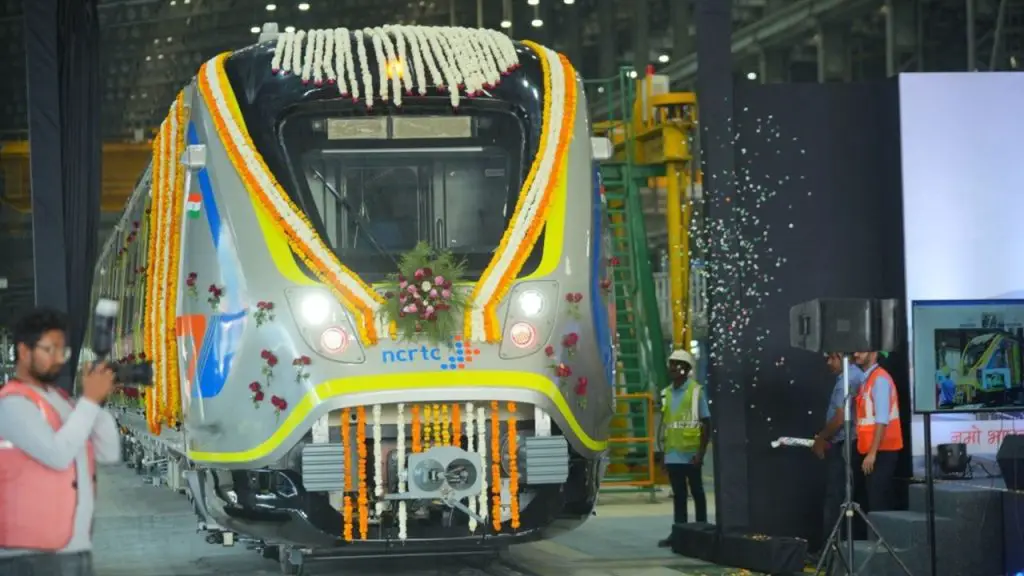National Capital Region Transport Corporation (NCRTC) has received the first metro train for Meerut. The trainset with three coaches will be deployed in the Meerut city. The train was unveiled for the first time by NCRTC, the agency responsible for the execution of the Regional Rapid Transit System (RRTS) project. It is to be noted that the train received for the transit system has been manufactured at a facility in Savli, Gujarat.
Also read: Greater Noida West Metro Revised DPR Approved By NMRC, 2 Stations Added
The trainset has been manufactured by Alstom and will be operated on the extension of the 82 km RRTS which connects Delhi, Ghaziabad, and Meerut. The Metro module in Meerut will have 10 operational metro trains. Alstom, the manufacturer, will supply ten three-car trainsets for the Meerut Metro, along with rolling stock maintenance for 15 years.
These trainsets will be energy-efficient and equipped with modern facilities such as Automatic Train Protection (ATP), Automatic Train Control (ATC), and Automatic Train Operations (ATO).
The proposed stations include Meerut South (elevated), Partapur (elevated), Rithani (elevated), Shatabdi Nagar (elevated), Brahampuri (elevated), Meerut Central (underground), Bhaisali (underground), Begumpul (underground), MES Colony (elevated), Daurli (elevated), Meerut North (elevated), Modipuram (elevated), and Modipuram Depot (at grade).
Meanwhile, the RRTS Ghaziabad section will have six coaches of Namo Bharat trains operated in RRTS Ghaziabad section which will be operational at a speed of 160 kmph. These coaches will have red stripes on silver coaches. The Delhi-Ghaziabad-Meerut RRTS corridor, spanning 82 km, is currently under construction.
The priority section between Sahibabad and Duhai Depot, covering 17 km, is already operational. The entire stretch is expected to be operational by June 2025. The Meerut corridor, which is still under construction, will have 13 stations and span 23 km, with 18 km being elevated and 5 km being underground.

